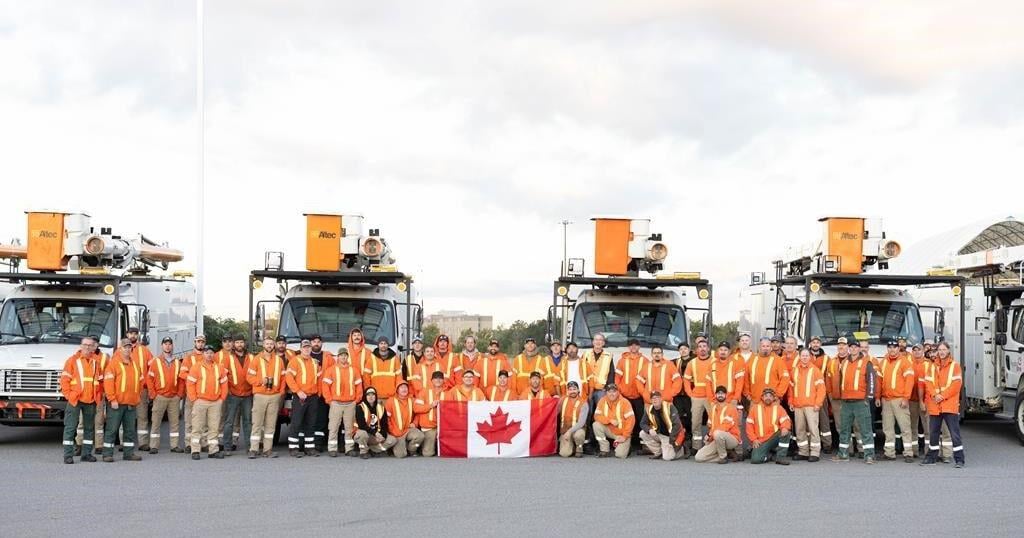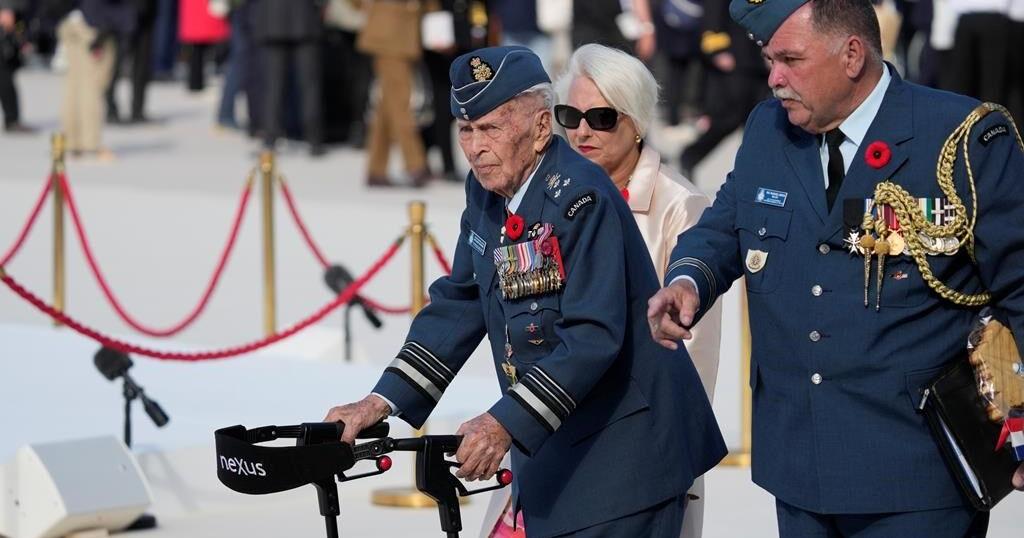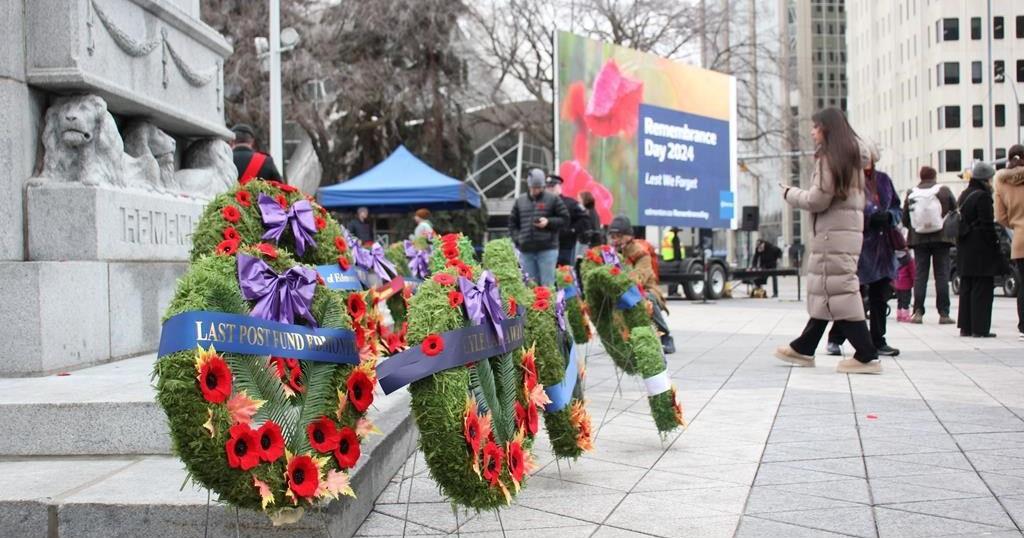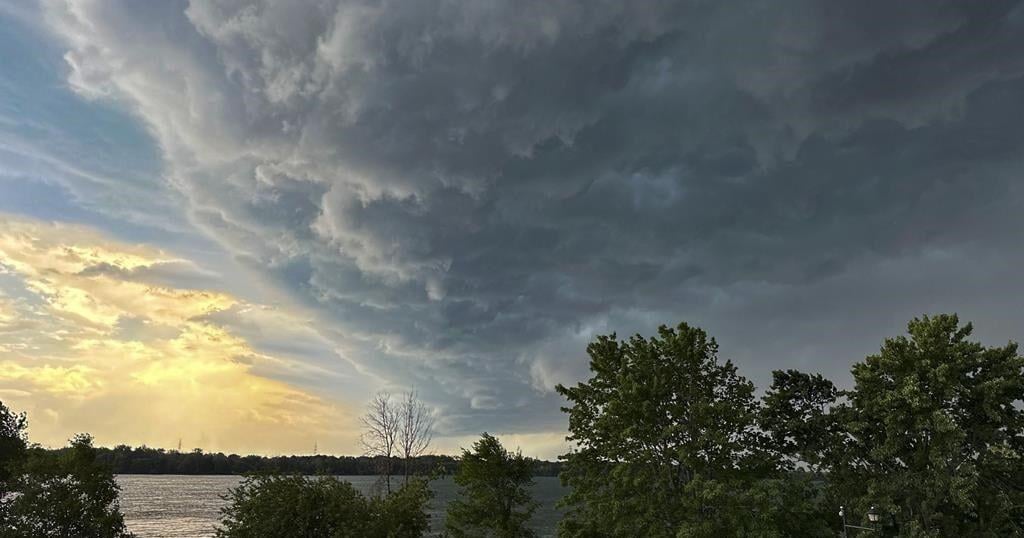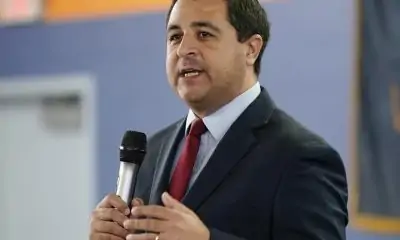TORONTO – Canada must defend itself against an emerging Russia in the High Arctic, says one of Canada’s most decorated veterans, a man who helped defeat Germany in the Second World War.
Richard Rohmer, an honorary lieutenant-general and former major-general in the Canadian Armed Forces, took a breather inside Queen’s Park on Monday after helping lead Remembrance Day ceremonies outside.
The 100-year-old was a reconnaissance fighter pilot in the war, helped attack the Germans from the sky on D-Day and in 1945 took out a key bridge in Holland, leaving the retreating Germans without an escape route.
Adolf Hitler’s army surrendered soon after that.
Rohmer is now sharing a warning for Canadians about the freedoms they enjoy.
“We’re starting to get great messages now about the need to defend our High Arctic against the Russians who are sitting on the other side of the water,” he said.
“And it’s time we started to defend ourselves, which we don’t.”
Over the summer, the Pentagon warned of increasing Russian destabilizing activities in the Far North, along with more naval co-operation between Russia and China in the area.
Climate change is also leading to worries about Canada’s sovereignty in the North, a vast, remote area that may become more accessible to Russia and China as the Arctic Ocean thaws.
“We have to build up our forces again,” said Rohmer, who flew 135 missions in his P-51 Mustang during the Second World War.
“It’s good for Canadians to learn about the military on days like this so that we can start to get more interest among the young people.”
An image of the famed plane was etched into the Veterans’ Memorial wall outside Queen’s Park in 2006.
But Rohmer was unable to accomplish one final mission: get the name of the wall engraved on the side facing the legislature, which is currently blank.
So during his speech, he asked Premier Doug Ford to step up.
“It is the Veterans Memorial wall and a few words, letters, somehow, premier, on that side would be helpful to let all strangers know — when they appear and see this wall, they don’t know what it is,” he said.
“At the moment, it’s just a blank wall, but the premier is the kind of man who likes to get things done and I’m giving him another suggestion.”
Ford smiled and nodded.
Nearly 150,000 Allied troops stormed the French beaches on D-Day, including 14,000 Canadians. About 359 Canadians were killed that day and another 5,000 died in the ensuing months of battle.
Rohmer, a lawyer and prolific author, returned to Normandy this year for the 80th anniversary of D-Day. He was part of D-Day and played a critical role in Germany’s defeat.
In the lead up to the end of the war in 1945, Rohmer was an artillery specialist as a fighter pilot. One day, he had instructions to take out a key bridge held by the Germans in Holland with a “super heavy artillery gun,” he said.
As he zeroed in on a bridge on the Meuse River in Venlo, he took heavy enemy anti-aircraft fire.
“I was shot at a lot,” he said with a grin.
He pulverized the bridge.
“But I finally knocked the bridge down overnight and that was the last bridge that the Germans had to get out,” Rohmer said.
“So that caused the German army to ultimately surrender.”
Next May, Rohmer plans to return to the Netherlands, where he finished his tour of duty.
“I want to be there for May the fifth, the day the war stopped and Holland was liberated,” Rohmer said.
This report by The Canadian Press was first published Nov. 11, 2024.

